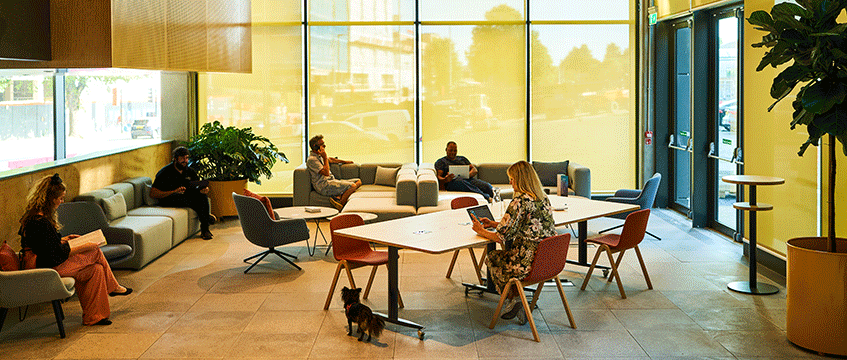COMMENT Just over an hour by train from London, Brighton has been described variously as the UK’s hippest city and the happiest place in Britain.
An established seaside resort since the middle of the 19th century, the city is now regarded as one of the best places to work in the country. It has the best of all worlds: access to beaches, glorious countryside nearby, and a range of vibrant urban activities. It is also seen as one of the UK’s most entrepreneurial cities, in recent years attracting a range of start-ups, particularly in areas such as innovation, creative, gaming, digital and tech sectors, earning it the nickname “Silicon Beach”.
It hasn’t been all plain sailing, however. Like the rest of the country, Brighton felt the full impact of government-imposed lockdowns in response to coronavirus. But now, as life returns to a greater degree of normality, the city is in full recovery mode, and its potential as a business location is becoming clearer than ever.
Fly in the ointment
The attractiveness is evidenced by a recent survey of 250 senior decision-makers in large central London businesses – those with more than 250 employees – in which it was deemed the most attractive location in the South East to set up a satellite or “spoke” office post-pandemic. In a poll of cities across the region it beat the likes of Oxford, Cambridge, Royal Tunbridge Wells and Reading.
Many businesses eyeing up Brighton have no intention of deserting the capital, and as a regeneration specialist with a number of interests in London, neither do we. But Brighton does stand to benefit from those firms that are either looking to move, as they reduce their central London office footprint as a result of changing working habits, or as they consider the advantages of establishing a satellite presence in the city. Either way, this trend will offer a significant boost to the local economy.
There is a fly in the ointment, however. Brighton’s potential could be stymied by a lack of high-quality office space. Another poll of senior decision-makers in Brighton-based businesses found that nearly a third believe there is an insufficient supply of quality office space in the city to support growth, and almost a quarter reckoned this shortage of supply was leading to an increase in office rents. Yet another survey carried out by Knight Frank confirmed that Brighton’s popularity as a workplace destination was piling on the pressure for those trying to find office space.
In other words, the city is in danger of becoming a victim of its own success. It has huge potential to benefit from post-pandemic changes in working patterns and lifestyles, but it clearly needs investment, not least in its pipeline of accommodation for those businesses that want to set up shop there or grow from existing locations.
Enterprise culture
At U+I we are confronting this issue head on. In partnership with Brighton & Hove City Council and the University of Brighton, we are developing two of Brighton’s largest ever regeneration schemes: the £130m Circus Street scheme, which includes 30,000 sq ft of highly sustainable grade-A office space, designed to attract Brighton’s new generation of occupiers, and the £300m Preston Barracks, which is home to Plus X (pictured), a seven-storey innovation hub with state-of-the-art workspace for creatives, scale-ups and large corporates.
We’ve long believed in the potential of Brighton. Indeed it was the strength of the city’s enterprise culture that saw us choose it as home to what is our first Plus X scheme, which opened last year and has since supported numerous businesses innovating across the worlds of tech and product design.
In the city centre, Circus Street is just about to complete, having transformed what was a derelict fruit and veg market building into a new cultural innovation quarter, with its office building now available to let, shops, bars, 142 homes, 450 student bedrooms and a theatre for South East Dance, all surrounded by beautiful public realm with lush landscaping and various art installations. Those working in the offices will have access to this diverse and exciting new neighbourhood – creating more appeal for those looking to work in the city.
That the demand in Brighton is there from occupiers is not in doubt, and we only expect this to grow as London businesses evolve their office strategies.
With its great quality of life and commercial potential, Brighton is set to benefit from the increasing shift to flexible working habits. Provided the space is available for them, more businesses – and their employees – will undoubtedly move into the city.
There’s an opportunity here for our industry to recognise this bright future for the office market in cities like Brighton and Hove and build the places and spaces that growth-focused businesses need to thrive in the long term.
Rob Sloper is development director at U+I











